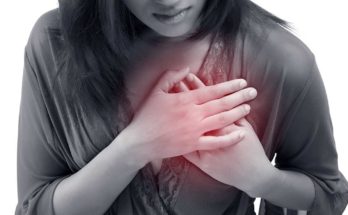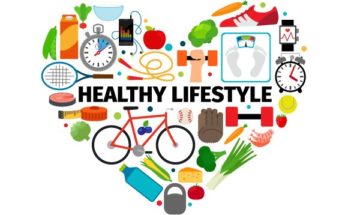If you have a high risk of developing heart disease or vascular pathologies in the future, or you have already identified arrhythmia, hypertension, or atherosclerosis, it is important for you to change your lifestyle in order to maintain health and strengthen it, to take care of your heart. Doctors say that the more healthy habits you have, the better you will feel. But what is a healthy lifestyle for cores and is it necessary to adhere to these principles?

Heart and blood vessels: the basis of life
Along with the nervous system, which includes the brain and spinal cord with a network of peripheral nerves in all organs and tissues, the cardiovascular system is the basis of human life. The human heart begins to beat in the womb, from the fifth week from conception and continues to do so throughout life without stopping. The main function of the heart is to constantly pump blood through the vessels of the body to deliver oxygen and nutrients to the tissues, while simultaneously removing waste compounds and carbon dioxide. The organ works autonomously, we cannot stop or “start” the heart by an effort of will, but it is sensitive to changes in load. Heart resources are large enough but are not endless, so you need to take care of your “fiery motor”. The health of blood vessels is no less important – if they are flexible, elastic, and passable throughout, they supply blood to tissues without interruption. But various problems – atherosclerosis, inflammation, trauma, thrombosis – disrupt the structure of blood vessels, change their lumen, due to which the body suffers from a lack of oxygen and nutrition. Many problems of the heart and blood vessels are man-made, that is, a person creates them for himself, due to an unhealthy lifestyle. If the heart is ill, atherosclerosis, or any other pathology of the cardiovascular system is detected, this is a signal – something needs to be changed urgently!
Healthy lifestyle with heart disease
With the advent of a diagnosis of serious heart disease, a person’s life changes dramatically. If your doctor says that your coronary artery is almost completely blocked by plaque, or your heart muscle is not working as well as it should, you will definitely need treatment, without which extremely unfavorable outcomes are possible, up to sudden death. And treatment is not just pills or procedures or heart surgery: living with
heart disease requires a combination of medication and other medical interventions with significant lifestyle changes.
Heart disease is caused by a number of different factors, so influencing several of them at the same time is a more effective way of rehabilitation. The overall effect of complex life changes will be more than just medication. There are at least 10 tips to start with.
Need to quit smoking
Smoking is dangerous not only for the bronchi and lungs: it negatively affects the entire body. Give up this habit as soon as possible if you are living with heart disease. Smoking is associated with an increased risk of heart attack, stroke, and high blood pressure. It increases inflammation and causes blood clots, and also provokes cancer of various sites. It’s never too late to give up an addiction and partially eliminate its negative effect on the body. If you yourself cannot quit smoking, numerous treatments can help you quit smoking, including everything from nicotine patches and medications to acupuncture and hypnosis.

Avoiding unhealthy foods is important
Rarely will anyone refuse delicious, but not always healthy, meals, especially on holidays or in the evening after work. These fatty, sweet, salty, high-calorie foods and snacks may taste good, but they don’t help your heart. For example:
Eating salty foods can lead to fluid retention in the body, which raises blood pressure and may worsen heart failure.
Consuming processed foods, refined grains, or sugary foods (or drinks) can cause chronic inflammation, which contributes to the buildup of atherosclerotic plaques in the walls of your arteries.
Eating too many foods high in saturated fats, such as red meat or high-fat dairy products, can raise “bad”
LDL cholesterol, chronic inflammation, and plaque buildup in the arteries (which can reduce blood flow or block an artery, break down and lead
to thrombosis ).
Give your heart a break by making adjustments to your diet. For cores, a predominantly plant-based diet is needed with the use of a small amount of protein from lean meat or fish, poultry.
Stick to a healthy lifestyle
A number of diets have been shown to help patients with cardiovascular disease, and most of them follow the same pattern: they are mostly plant-based and low in salt, sugar, fat, and calories. You can eat a Mediterranean diet rich in fruits, vegetables, legumes, seeds, nuts, olive oil, and whole grains, plus a moderate amount of fish and poultry.
Some cardiologists are promoting a slightly stricter diet, banning almost all animal products, saturated fat, sugar, and excessive caffeine intake. Many doctors also recommend limiting meat consumption. There is mounting evidence that animal protein is inflammatory regardless of fat and carbohydrates, and red meat is one of the most dangerous foods for people with heart problems.

Exercise regularly
Movement is life: this statement is true for any age. Exercise is essential for health from infancy to
old age and is especially important if you live with heart disease. With regular exercise, the endothelium (the lining of the arteries) works more efficiently.
Exercise helps you grow new collaterals if you have heart disease and myocardial malnutrition. Collaterals are like built-in shunts, bypass pathways in which your body can supply blood to areas that lack oxygen and nutrition. How much exercise do you need? Leading cardiac health organizations suggest 150 minutes of moderate-intensity activity (such as brisk walking) per week.
For most people, experts recommend reaching 60-70% of your maximum predicted heart rate. But it all depends on what medications you are taking.
If you are taking a beta-blocker, your heart rate will be lower. Some patients require exercise at a lower heart rate.
Limit alcohol consumption
Drinking alcohol can be dangerous, especially if you have heart failure or arrhythmia (abnormal heartbeat), if you have already had a heart attack (heart attack), or if you are taking medications that alcohol can affect (such as statins). It’s important to talk to your doctor and be honest about how much alcohol you drink each day. Of course, it is not necessary to completely abandon strong drinks. In some cases, when you are living with cardiovascular disease, you can drink in moderation – no more than one drink per day for women (a glass of wine or beer) and no more than one or two drinks per day for men (two glasses of wine or beer). But it depends on your health, some people need to completely and permanently eliminate alcohol from their lives. About
as alcohol destroys the heart,

Reduce Chronic Stress
The body’s response to stress helps us respond in a dangerous situation: the body releases adrenaline pumps blood into your muscles, and increases your breathing and heart rate. But activating this response continuously due to a difficult job or family situation can damage the heart. The same mechanisms that have evolved to protect us in the wild can actually kill us when we are chronically stressed in modern living conditions. This is important because not only the arteries in your arms and legs constrict but also the vessels of your heart. This can lead to a decrease in blood flow in the myocardium and its ischemia, hemorrhage into the plaque, leading to a heart attack, as well as accelerating blood clotting. Stress Relief is a relaxing body response that slows your breathing and heart rate and produces a range of health benefits. You can induce a relaxation response in many ways, such as meditation or yoga practice, sports, or hobbies.
Control your weight
Being overweight when you live with heart disease makes your heart work harder and harder. This puts more stress on a muscle that is already sick but continues to nourish your tissues every day. Obesity also puts a lot of stress on your joints and can exacerbate knee or hip pain, which can make exercise and any movement painful. In addition, being overweight is also a risk factor for sleep apnea – long pauses in breathing during sleep, which increases the risk of high blood pressure, stroke, atrial fibrillation, or heart failure. Hypoxia during sleep worsens the condition during the day, and obesity worsens at night.
Take your prescribed medications
Non-adherence to medication is a big problem among people living with heart disease. If you look at some studies, as many as 50% of people do not take their medication. Missed doses of medication can have serious consequences. For example, if you have a stent (a tube that opens up arteries), you must take antiplatelet drugs that thin the blood, otherwise, a blood clot may close the stent. It is also important to strictly follow the regimen of taking drugs for blood pressure, antiarrhythmic drugs, and cholesterol-lowering drugs.
See your doctor regularly
Your doctor should see you regularly to monitor your progress and make any necessary adjustments to your treatment. We are all so busy that going to the doctor seems superfluous, you can do without him, especially if the state of health does not suffer. But if you do not do this, exacerbations and worsening of the condition are possible. In addition, some drugs are only available with a prescription and
cannot be obtained without a visit to the doctor. It is important to regularly conduct blood tests, monitor vital signs and adjust therapy.

Seek support
It is easier to live with cardiovascular diseases when you are supported by your doctor and family, your friends. Patient rehabilitation, which is usually prescribed after a heart attack, includes individually tailored exercise programs, dietitian advice, and emotional support. Cardiac rehabilitation is critical for a patient with a heart attack or stroke to recover sooner. If it is the only medicine, it reduces your mortality rate by 28%: everything else is the care and help of loved ones. Relying on friends and family or simply spending time with them is also critical to heart health. You are more likely to smoke, overeat, drink too much, work too hard, and bully yourself when feeling lonely and isolated. “The time we spend with our friends and family is a really important thing.
You and your doctor can come up with additional strategies to help you live as healthy as possible with heart disease. The more positive you bring in, the better you feel. Good nutrition, being active, managing stress and loving loved ones can actually reverse the development of even severe coronary heart disease.





